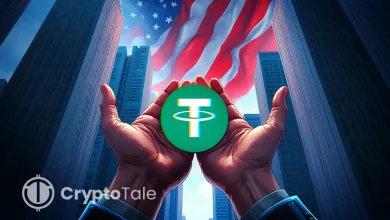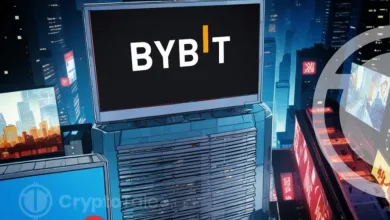JPMorgan’s CEO, Jamie Dimon Admits Crypto Is Here to Stay

- Jamie Dimon says crypto, blockchain, and stablecoins are real and will be used by all.
- JPMorgan expands Kinexys blockchain with Citco to automate operations and reduce costs.
- The bank plans to let institutional clients use BTC and Ether as collateral by 2025.
JPMorgan Chase CEO Jamie Dimon has acknowledged the legitimacy of cryptocurrencies, blockchain, and stablecoins during the Future Investment Initiative (FII9) in Riyadh, Saudi Arabia, this week. Dimon, once a crypto skeptic, stated that digital assets and smart contracts are “real” and will soon be used by everyone to improve financial transactions and customer service.
Dimon on Crypto and Blockchain Use
Speaking alongside executives from Goldman Sachs and BlackRock, Dimon said, “Crypto is real. Blockchain is real. Stablecoins are real.” He said that JPMorgan already uses blockchain technology through its deposit coin and smart contracts to streamline operations.
His remarks are a change from earlier years when he criticized Bitcoin and questioned crypto’s long-term viability. According to Dimon, the bank’s blockchain applications are private, allowing complete control over permissions and governance.
He clarified that this differs from decentralized networks such as Bitcoin or Ethereum, where anyone can participate. This private setup, he said, enables JPMorgan to maintain compliance while still benefiting from blockchain’s speed and efficiency.
The remarks follow JPMorgan’s ongoing integration of blockchain into traditional banking systems. The bank plans to allow institutional clients to use Bitcoin and Ethereum as collateral for fiat loans by the end of 2025. The move would be one of Wall Street’s most direct uses of digital assets within mainstream finance.
JPMorgan Expands Kinexys Blockchain
In line with Dimon’s comments, JPMorgan has expanded its Kinexys blockchain platform beyond payments and repo trading into private markets. The bank announced that its asset and wealth management divisions, in partnership with fund administrator Citco, completed the first transaction using Kinexys Fund Flow.
The new system automates capital activity for alternative investment funds by tokenizing investor records and using smart contracts to move cash between JPMorgan brokerage accounts and fund managers. This innovation replaces manual reconciliations and wire transfers, which remain common in private-fund operations.
JPMorgan said the system runs on the same permissioned network that supports its tokenized deposit and payment services. A broader rollout of Kinexys Fund Flow is expected in early 2026, with additional features to follow throughout the year. Citco stated the system could reduce operational errors and costs, improving fund administration across the industry.
The bank has been steadily improving its blockchain adoption. In August, it launched an on-chain intraday repo solution through Kinexys, allowing institutions to exchange cash and securities in real time. These build on earlier blockchain efforts, including the 2019 launch of JPM Coin and the 2020 creation of its Onyx blockchain unit, now unified under Kinexys.
Related: JPMorgan’s Kinexys Launches Carbon Credit Tokenization
Institutional Use and Broader Industry Impact
JPMorgan’s blockchain pilot aligns with wider industry adoption trends following the U.S. Genesis Act, signed by President Donald Trump this summer, which established a regulatory framework for stablecoins. Major financial institutions such as Goldman Sachs and the Bank of New York Mellon have also begun testing tokenized money market fund products.
The bank’s deposit token pilot on Base, along with its plans to enable Bitcoin and Ethereum collateralization, shows growing institutional confidence in blockchain finance. The first live Kinexys transaction included JPMorgan Asset Management, the Private Bank, Kinexys Digital Assets, and Citco, showing how traditional institutions are embedding blockchain into core financial workflows.
Dimon’s acknowledgment is a practical evolution within legacy banking circles as firms embrace technology once viewed with skepticism. His statement, “It will be used by all of us,” shows the change toward integrating blockchain tools to improve efficiency, transparency, and customer experience across global finance.
Meanwhile, Jamie Dimon’s remarks in Riyadh are a turning point in JPMorgan’s approach to digital assets. The bank’s fast blockchain integration, expanding Kinexys platform, and upcoming crypto-collateral program together indicate a move toward blockchain-based finance. As Dimon put it, blockchain, stablecoins, and smart contracts are “real” and now important to the future of global banking.




